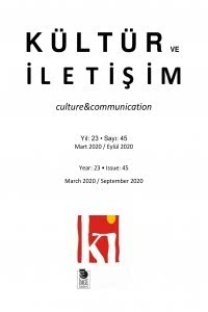Amerika' da Eğitim Dili Politikaları ve "Öteki" Diller
Amerika Birleşik Devletleri'nde göçmen ve etnik gruplar ana dillerini tehlike sinyalleri verecek bir hızda kaybetmektedirler. Araştırmalar, farklı dil gruplarının iki ya da üç kuşak içerisinde hatta daha hızlı bir biçimde ana dilleri yerine İngilizceyi benimsediklerini göstermektedir. Çocuklar İngilizceyi benimseyerek ana dillerinde yetersiz kalmaktadırlar. Bazıları ebeveynleriyle ortak bir dilde konuşamazken, büyük bir çoğunluğu ise, büyük anne ve büyük babalarıyla aynı dile sahip değildirler. Bu makale, Amerika Birleşik Devletleri'ndeki azınlık dillerinin süratli erozyonuna yol açan faktörlerden biri olan eğitim dili politikalarını incelemekte ve 20. yüzyılda İngilizce tek-dilciliğinin empoze edilmesinde devlet okullarının önemli bir rol oynadığını ortaya koymaktadır. Çalışmada, dil azınlığı öğrencileriyle ilgili dil politikası tartışmalarını ve uygulama programlarını üç döneme ayırarak ele alınmaktadır: Birinci Dünya Savaşından İkinci Dünya Savaşına kadar; İkinci Dünya Savaşı'ndan 1980'lere kadar; ve 1980'den bugüne kadar.
Anahtar Kelimeler:
çocuklar ve anadil, dilsel erozyon, Amerika'da çocuk ve dil
School Language Policies in the United States and the "Other" Languages
In the U.S. immigrant and ethnic groups are losing their heritage languages at an alarming rate. Research has indicated that language groups replace their native languages with English in two or three generations or faster. Children grow up fluent in English with little proficiency in the native language. Many are unable to speak to their parents in the heritage language; most do not have a common language with their grandparents. This article examines one contributing factor to the rapid erosion of languages in the US,namely school language policies. English imposition in schools is illustrated by discussing school language policy debates and program, decisions in the education of language minority students in reference to three historical periods throughout the 20th century between World War I and Il; from World War Il to the 1980's, and from 1980 until 2002.
Keywords:
children and heritage language, English imposition, erosion,
___
- Bartolome, Lilia I. (2000). "Democratizing Bilingualism: The Role of Critical Teacher Education." Lifting Every Voice: Politics and Pedagogy of Bilingualism. Z. F. Beykont (der.) içinde. Cambridge, MA: Harvard Education Publishing Group. 167-186.
- Berriz, Berta. R. (2000). "Raising Children's Cultural Voices: Strategies for Developing Literacy in Two Languages." Lifting Every Voice: Politics and Pedagogy of Bilingualism. Z. F. Beykont (der.) içinde. Cambridge, MA: Harvard Education Publishing Group. 71-94.
- Beykont, Zeynep F. (1994). Academic Progress of a Nondominant Group: A Longitudinal Study of Puerto Ricans in New York City's Late-Exit Bilingual Programs. Doctoral dissertation thesis. Cambridge, MA: Harvard Graduate School of Education.
- Beykont, Zeynep F. (1997a). "School-Language Policy Decisions for Nondominant Language Groups." Quality Education for All: Community- Oriented Approaches. H. D. Nielsen & W. K. Cummings (der.) içinde. New York: Garland. 79-121.
- Beykont, Zeynep F. (1997b). "Refocusing School-Language Policy Discussions." International Handbook of Education and Development: Preparing Schools, Students, and Nations for the Twentyfirst Century. W. K. Cummings & N. F. McGinn (der.) içinde. New York: Pergamon. 263-283.
- ISSN: 1301-7241
- Yayın Aralığı: Yılda 2 Sayı
- Başlangıç: 1998
- Yayıncı: İmge Kitabevi Yayınları
Sayıdaki Diğer Makaleler
Ürün Tasarımı ve Anlam: Gösterge ve Sinyal olarak Nesne
International Communication Association Toplantısı
Ötekinin Söylemi ya da Öznenin Lacancı Algılanışında Dil
Masculinity, Sexuality and the Visual Culture of Glam Rock
